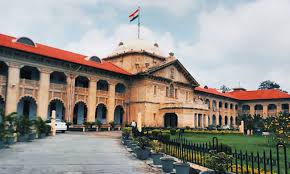L. Narasimha Reddy, J.@mdashThe appellant is an assessee. His land, admeasuring Ac. 1.62 cents was acquired by the Government of A.P. in the year 1976, by invoking the provisions of the Land Acquisition Act (for short ''the Act''). The Land Acquisition Officer fixed the market value at Rs. 6.50 ps. per square yard. Not satisfied with that, the appellant sought for reference under Section 18 of the Act. The same was taken up by the subordinate Judge, Ongole and through its order, dated 31.07.1986, the trial Court enhanced the market value to Rs. 20/- per square yard. The statutory benefits such as solatium, additional market value were also awarded. Seeking further enhancement of compensation, the appellant filed an appeal before this Court. Through its judgment, dated 16.08.1991, this Court the fixed the market value at Rs. 70/- per square yard. All the statutory benefits were also extended. The appellant filed returns year after year. In the context of levy of the capital gains tax, the appellant claimed the benefit under Section 54-H of the Income Tax Act (for short ''the I.T. Act'').
2. The Assessing Officer restricted the benefit only to the amount awarded by the Land Acquisition Officer. The enhancement ordered by the trial Court as well as this Court were treated as additional compensations and not covered by Section 54-H of the I.T. Act. The Commissioner of Appeals dismissed the appeals through order, dated 19.12.1995. Further appeals preferred before the Hyderabad Bench of the Income Tax Appellate Tribunal being I.T.T.A. Nos. 571 and 572/Hyd/96 were also rejected, through order, dated 30.05.2001. Hence, this appeal against the common order.
3. The substantial question of law raised by the appellant reads:
"Whether on the facts and circumstances of the case the word compensation as referred to in Section 45(5)/ 54H of the Income Tax Act, 1961 includes the additional compensation or not?"
4. Heard learned counsel for the appellant and learned counsel for the respondent.
5. The compensation received by the owner of the property whenever it is acquired under the Act is treated as ''capital gains'' and it is made subject to levy of capital gains tax. However, certain relief is granted by the Parliament to such persons. In case, the compensation so received is invested in acquiring similar properties or constructing buildings within the stipulated time, the amount is exempted from capital gains tax.
6. It has already been mentioned that the determination of the compensation for the land acquired from the appellant occurred at three stages viz., Land Acquisition Officer, Civil Court and the High Court. Naturally the payment of compensation was also made in a staggered manner depending on the nature of adjudication.
7. In the context of allowing the benefit under Section 54-H of the I.T. Act, the assessing authority took the view that it is only amount which is determined by the Land Acquisition Officer, that can be the subject matter of the exemption under Section 54 of the Act. The same view was upheld by the appellate authority as well as the Tribunal.
8. Though one may call the amount awarded by the Land Acquisition Officer towards compensation as the consideration for the acquired land, that figure is not final. The Act conferred right upon the owner of the land to seek reference under Section 18 of the Act and to prefer appeal under Section 54 thereof. It is common that in a given case, the matter may reach even the Supreme Court either at the instance of the owner of the land or the State. It is only when the market value and thereby the compensation is determined by the Court, that the matter would assume finality.
9. Through out the proceedings, the authorities under the Act have employed the expression "additional compensation". In our view, it is a misnomer to call the enhanced amount as "additional compensation". The word "compensation" connotes not only the market value but also the other components such as solatium and additional market value provided for under the Act. The determination thereof may assume finality, in some case, at the stage of the award and in some cases, in the reference made under Section 18 of the Act by the Civil Court and in yet other cases, by the High Court. In certain given cases, the matter may even reach the Supreme Court. At various levels, the compensation may be either enhanced or reduced. The final figure represents the compensation. There is nothing like additional compensation, in matters of this nature.
10. Since the very adjudication before various authorities proceeded on the assumption that there exists a separate component of additional compensation and since we find that such a concept is alien to the Scheme and the Act or for that matter, the I.T. Act, we allow the appeal and accordingly set aside the impugned order. It is directed that the benefit under Section 54-H of the I.T. Act shall be extended to the entire amount of compensation as enhanced by the High Court.
11. The miscellaneous petition filed in this appeal shall also stand disposed of. There shall be no order as to costs.

